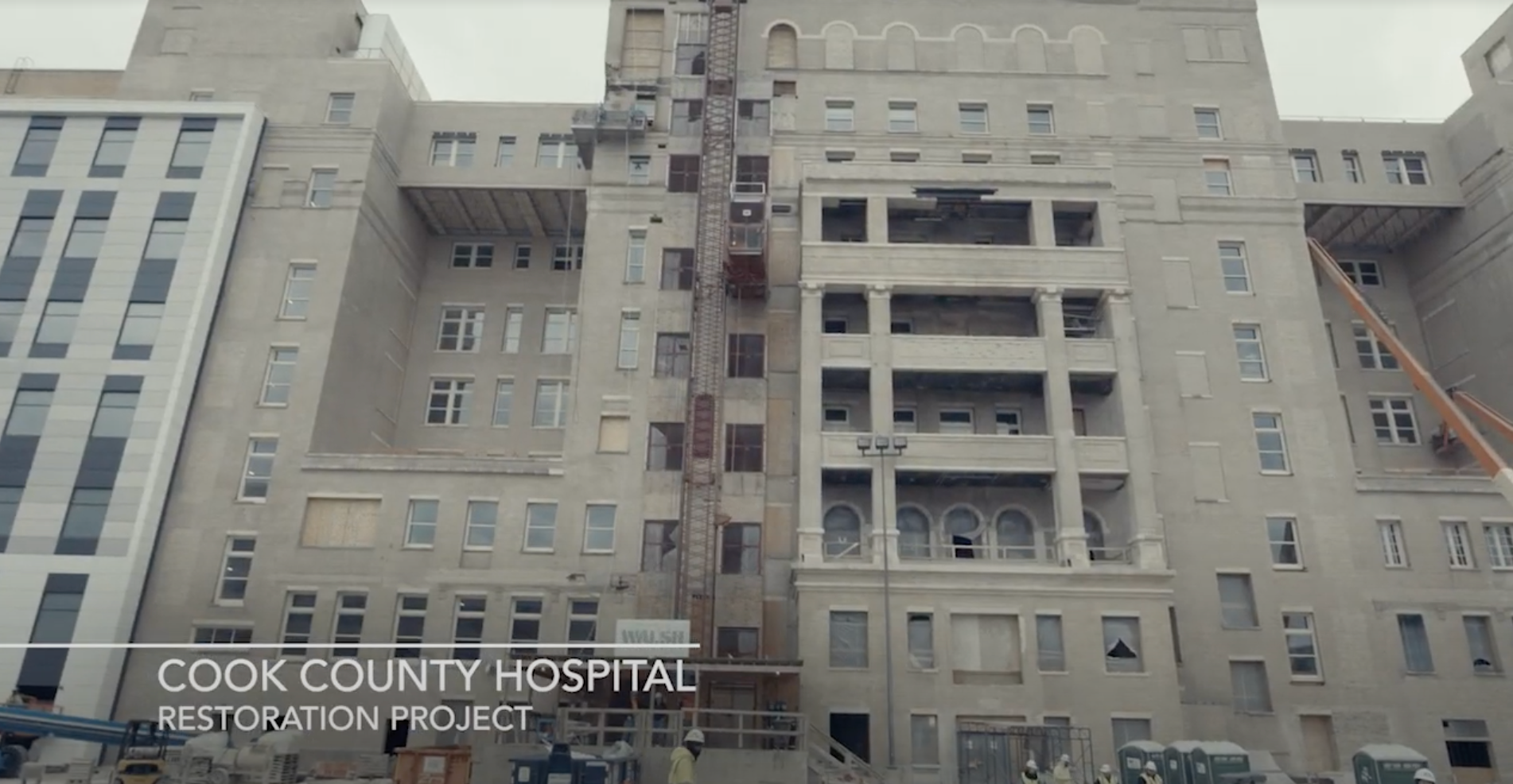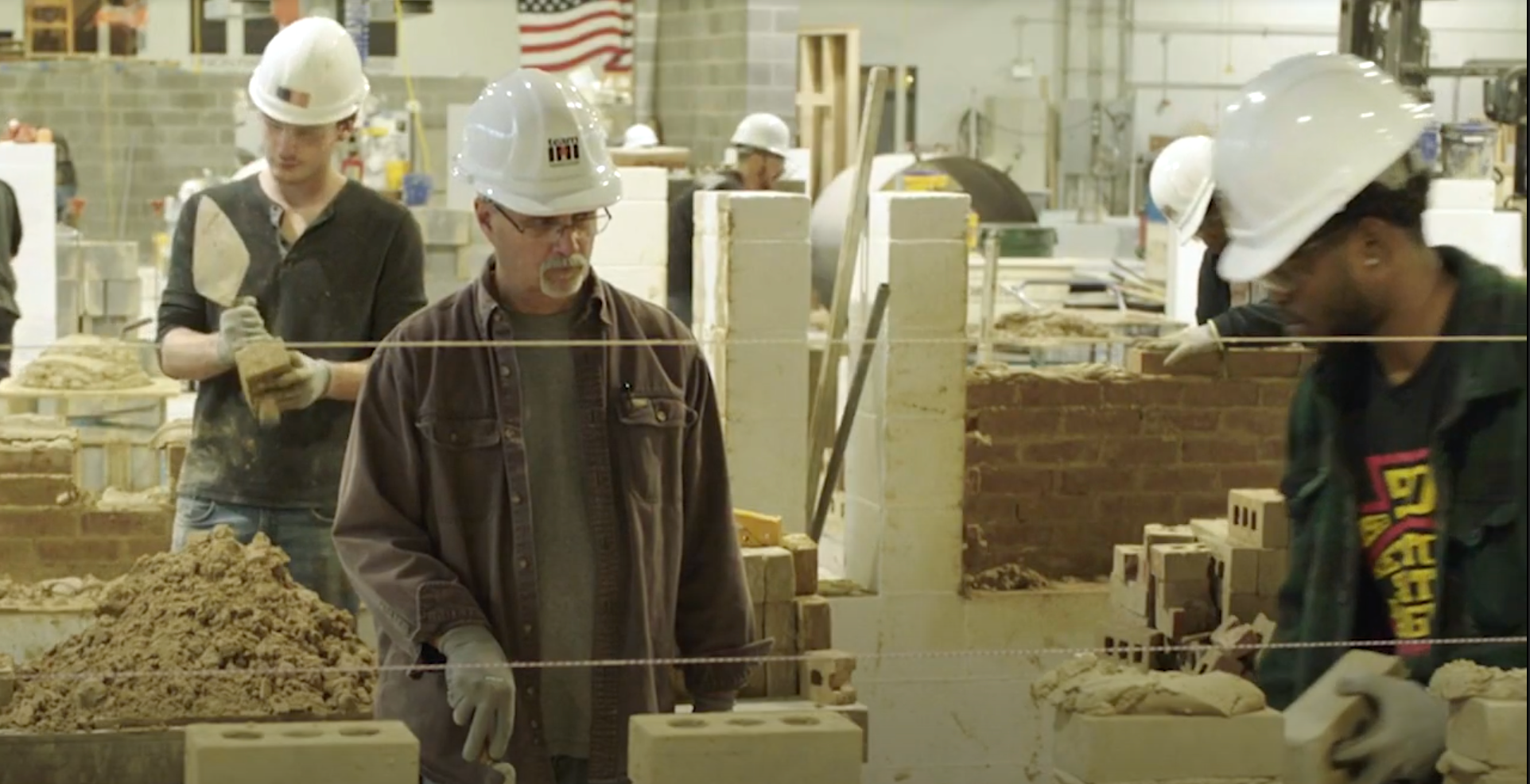Building Blocks: How IMI and IMTEF programs continue to prepare members for the Future
At first glance, the International Masonry Institute (IMI) and International Masonry Training and Education Foundation (IMTEF) are great allies to the mission of the International Union of Bricklayers and Allied Craftworkers (BAC).
Take a deeper look and you will see organizations committed to making sure BAC members not only are trained on the newest materials and installation techniques, but that they receive lifelong training.
Collectively, IMI and IMTEF are resources for information that provide the opportunity for long-term success for craftworkers throughout the masonry industry, including the designers who put products into buildings and ensure that the workers install them.
In an impactful and intimate glimpse into how the organizations help BAC build communities and build lives, the six-minute-plus video referenced BAC's work on the famed Cook County Hospital in Chicago. The 106-year-old facility recently underwent a $1 billion renovation, which delivered a Hyatt hotel, medical offices, a food hall, and more, to the Illinois Medical District on Harrison Street.

A number of BAC members were part of the renovation team that helped transform the building from, as one Union worker called it, "a horror story," into a vital part of the community. The essence of the Cook County Hospital renovation mirrors BAC's mission to help restore and preserve history, instead of tearing it down.
"The Cook County project really is a good example of how IMTEF and IMI are working together to provide the necessary resources and skillsets required for this level of restoration projects," said Roy J. Ingraffia, Jr., IMI's National Director of Industry Development. "The design team and the owners were looking to make sure that they had qualified craft workers on that project, where they knew that they could really count on the collaborative efforts of a both IMTEF and IMI to help deliver that."
Ingraffia said that IMTEF and IMI facilitates the collaboration among architects, engineers, construction management professionals and craftworkers. He believes that it is important for preservationists to not only understand the value of these historic buildings, but also how they can better serve a community into the future, either by restoration or adaptive reuse.
"The building industry has changed so rapidly over the last 150 years in that we really need to make sure that the skills that are being utilized for restoration project are just as good as the craftsmanship that was used during the original construction," Ingraffia said.
With all of the new ways that the built environment is being transformed, IMI and IMTEF President Caryn Halifax said it is critically important that the industry stay in step with cutting edge research and education. That is why IMTEF and IMI remains committed to not only installing new materials when a building is initially constructed, but also resolved to improve and restore those buildings as they age—keeping them iconic.""
"The International Masonry Institute and the International Masonry Trading Education Foundation are organizations committed to lifelong learning," Halifax said. "We see ourselves collectively as a source for information, vested in the long-term success for people throughout the mason and tile masonry industry, including the designers who put our products into buildings and ensure that the workers install them."

Takeesha Wash, BAC Local 21 Chicago, said that the training Union members get is critical to helping put the pieces back together. "For me, restoration means a lot because I've always been a person who loves to build people up. So when you think of restoration, you think of restoring somebody back to their original state, or better."
That is why IMTEF and IMI will continue to provide the tools to its apprentices and members—tools that not only build careers, but help build their communities. "Our commitment is that once people choose union masonry or tile, as a career, we want them to feel included in our community," Halifax said. "So we're constantly striving to create more inclusive environments.
Moving into the future, IMTEF and IMI will continue to welcome all comers and create new opportunities to ensure a level playing field. As IMTEF National Director of Apprenticeship and Training Anthony DiPerna said, "I think the trade themselves are a great avenue to uplift some of the poverty in this country. I think it's a great avenue to not only help the community and people in the community, but it starts little by little, as a building block." said, "I think the trade themselves are a great avenue to uplift some of the poverty in this country. I think it's a great avenue to not only help the community and people in the community, but it starts little by little, as a building block."
